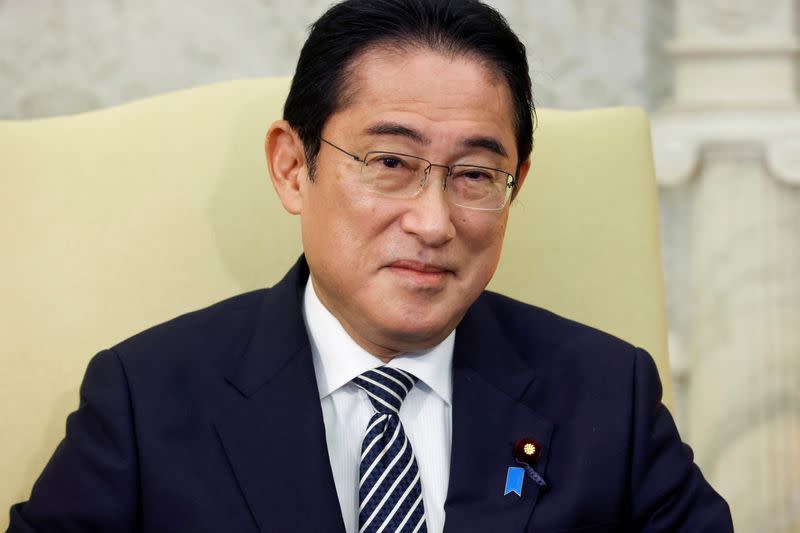Japan's Kishida says allies must act in concert on China

- Oops!Something went wrong.Please try again later.
By Michael Martina and David Brunnstrom
WASHINGTON (Reuters) - Japan, the United States and Europe must act in unison on China, Japanese Prime Minister Fumio Kishida said in Washington on Friday, during a visit aimed at enhancing Tokyo's U.S. alliance in the face of growing challenges from Beijing.
Kishida said in a speech at Johns Hopkins School of Advanced International Studies that China was the central challenge for both Japan and the United States.
"It is absolutely imperative for Japan, the United States and Europe to stand united in managing our respective relationship with China," he added.
Kishida earlier met President Joe Biden at the White House who said the United States remained strongly committed to its alliance with Japan and praised Tokyo's "historic" defense build up announced last month.
"The international community is at a historical turning point: the free, open and stable international order that we have dedicated ourselves to upholding is now in grave danger," Kishida said.
China's vision for the international order differs from the views of Japan and the United States in some ways that the allies "can never accept," Kishida said.
"China needs to make a strategic decision that it will abide by established international rules and that it cannot and will not change the international order in way that are contrary to these rules," Kishida said.
"We will never allow any attempts to unilaterally change the status quo by force, and we will reinforce our deterrence," he said, adding that countries should work with China to contribute to global peace and stability and in the Indo-Pacific.
Kishida reiterated Japan's concern about China's military activities near disputed islets in the East China Sea – known as the Senkaku Islands in Japanese and the Diaoyu Islands in Chinese – as well as China's launch of ballistic missiles last year that landed in waters near Japan.
Japan last month announced its biggest military build-up since World War Two - a dramatic departure from seven decades of pacifism - fueled by concerns about Chinese actions in the region.
(Reporting by Michael Martina, David Brunnstrom and Kanishka Singh; editing by Diane Craft)

